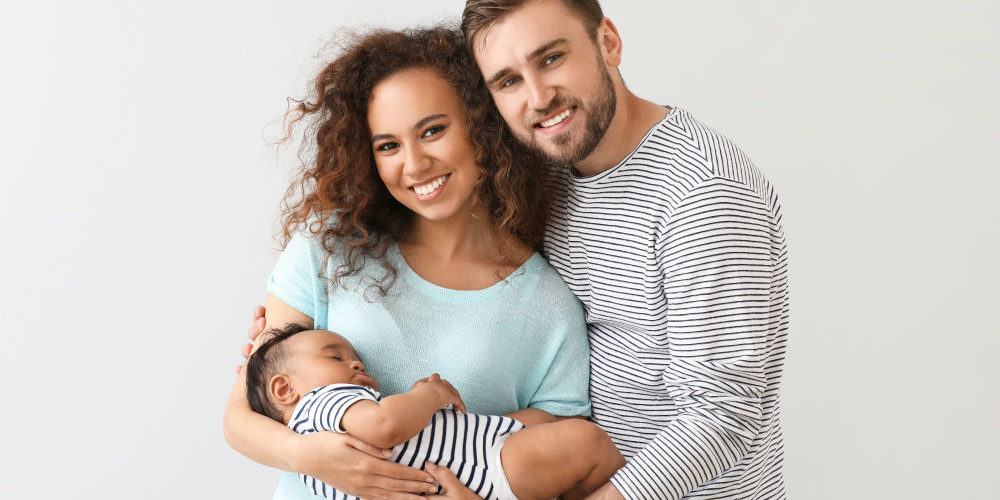It made more sense for my husband and me to go the route of domestic adoption when we started our adoption process. There are kids all over the world that need homes—I know that. But, with our jobs, lives, etc., it made more sense for us to adopt closer to home.
If you’ve also decided that adopting domestically is something that might work for you as you build your family, though that decision is made, there is still a lot for you to decide before you move forward on your adoption journey.
Here are 17 things you need to know about adopting a child in the U.S.
Do Your Research.
Like anything important, you need to do your research. There are ample books and articles that exist about adoption and you likely know people in your community that you can talk to, but I know from experience, it can be daunting. However, this is an important time for you to figure out what is going to work best for you and your family as you move forward on your adoption journey.
Know What Your State Demands
Every state is different. The laws, rules, etc., are different. Not only are the state rules different, but different agencies also have different rules based on their location and who regulates them, etc. Make sure that you understand your own state’s policies, and that you understand others that you may seek to adopt out of as well.
My husband and I chose to stay in our own state because it was less of a legal challenge, but we don’t know anyone else that has done it that way, so it really depends on what is best for you. In our case, the agency that we felt passionate about pursuing ONLY dealt with domestic adoptions in our state, so the decision was largely based on our agency choice.
Understanding your own state’s guidelines, procedures, and what is expected of adoptive parents is what you’ll want to explore first. As you move forward with adoption, if you begin to look out of state, make sure you’re aware of what you’ll need to do legally to bring a child across state lines, etc.
Again, though this seems like a lot, there is a multitude of resources out there for you, and in many cases, your agency or lawyer will help you with this process.
Learn more about your state’s guidelines to adoption.
Learn More about Adoption Agencies
While some people choose to use a lawyer to adopt, many choose to use an adoption agency. We did meet with a lawyer when we started, but in our case, an adoption agency was a more logical and quite frankly, smoother route for us.
In our case, at the time we adopted, in order to use just a lawyer to proceed, it was assumed that we would be searching for a birth mother on our own—something we knew nothing about and frankly, weren’t comfortable with. I have friends who have used an adoption lawyer because they’ve known the birth parents, etc.
For us, going through an agency made the most sense. However, it was a journey. To be blatantly honest, it took about six months for us to settle on an agency that best fit our needs. There wasn’t one local to us that worked, but we did find one in my hometown (ironically, one that I grew up knowing about!).
There are many things to consider when choosing an adoption agency, but one of the main things I always tell people to consider is their own comfort. Also, there are sometimes guidelines to work with an agency from religious affiliation to age and location of children that they work to place. Make sure to ask as many questions as possible when you visit with them, and be sure to read up on their website, and if you can find them, seek testimonials!
Worried about finding a reputable agency? Read this article.
Talk to Lawyers
As I mentioned before, we didn’t rule out using a lawyer until we had physically talked to one. Of course, we needed a lawyer (which was set up by our agency) when we did the official adoption court hearing, but you can also use an adoption lawyer to help facilitate the meeting of a birth parent, etc. Make sure you understand what that adoption lawyer is going to do for you and be clear about what your needs are in the process. Again, if you are fostering a child you’re going to adopt or have met birth parents, this might be the best arrangement for you.
Curious about what adoption lawyers do? Click here.
Talk to Others Who Have Adopted
I can NOT stress enough how important it is to talk to those who have adopted. You may have to seek people out if you don’t know anyone in your circle who has been down this road, but it is so helpful to know someone that you can talk to not only about the research process, but along the way.
When I spoke to those who had adopted previously, I wanted to know how they had chosen their agency or lawyer and what steps they took. But while I encourage you to talk openly about logistics, I do want to remind you not to hold tight to their timeline or think that their situation may be identical to yours. Every situation is different and my husband and I heard a lot of stories of people who completed their home study and then brought home a baby in a few months or even weeks time. In our case, it didn’t go that way, and we waited for our daughter through various ups and downs for over a year.
When people ask me questions about adoption, I like to share with them how I researched, what factors lead to us choosing our agency, the often sad reality of the process, and how best to navigate the ups and downs of the emotions you’ll ultimately feel.
Your best plan of action before speaking with anyone about adoption is to have a list of questions written out (which will seem weird if you’re going to talk to a friend, but will also ensure that you get the information that you need). And though that again, may seem awkward, I’ve had many friends around our kitchen table with notebooks scribbled full of their most important questions and have chatted on the phone while people ruffle through pages. It’s worth it to make sure that you get the information that you need.
Make Decisions
Eventually, you’ll have to start making decisions. After you choose an agency or a lawyer, you’ll have even more decisions to make. Some questions that you’ll be asked that you need to start thinking about sooner rather than later are if you plan to adopt an infant or an older child, if you’re willing to adopt outside of your own race, and if you’re open to multiple children, whether that be a multiple birth or siblings that are older.
None of these questions are easy and all need to be discussed thoroughly with your partner. My husband and I didn’t have any other children and had yet to experience raising a child from birth, so for us, it was important to adopt an infant. I have several friends who have adopted toddlers and elementary-aged children and I did talk with them at length before we pursued infant adoption, but again, our agency primarily focused on that. When it came to multiple births, we were okay with that because again, we had no other children. The topic that we discussed the most before we made a decision was adopting outside of our own race.
Transracial Adoption
Not only am I a huge reader, but I’m also a researcher by trade, primarily in education and global leadership. I had done a fair amount of research on transracial adoption, but in this case, research wasn’t enough.
I continue to learn about how best to raise a child of another race as we navigate different stages of her life. I’ve consulted with friends who can help ensure that my daughter’s hair is culturally appropriate and that I’m immersing her effectively in her culture.
When we chose to adopt outside of our race, my husband and I were dedicated to continuing to learn as we raised our child, to travel the world with our daughter as we all learned more about other cultures and immersing ourselves fully in them, and to ask questions when we needed help. Though you don’t need to travel the globe, I do think it’s necessary to be willing to travel to other towns, etc., so that your child can experience other people that look like him or her regularly if they’re not in your own town and to ensure that you are willing to always learn and if necessary, make changes to your own life if where you live or the people you are around aren’t what your child needs.
This is a personal decision for you, but also, one that will impact the child you are raising. Again, it is my recommendation that you read about this, and I’ve suggested a few articles below, but also, make sure you talk to people about this!
Read this article: “Should I Consider Transracial Adoption?”
Have questions about transracial adoption? This article will help!
Learn more about connecting with your adopted child’s culture.
Spend Time Organizing
The most time-consuming process of adopting in the United States is the paperwork. You’ll need background checks, financial statements, letters of recommendation, and you’ll have piles of paperwork to fill out.
I strongly suggest that you carve out some time in your schedule to sit down and really understand what you’re filling out, think carefully about the questions you’re answering, and make notes of what information you’re lacking.
Be sure to carefully read through what is required of you for your home study. Though this is the part of adoption that often causes the most stress for individuals, it’s really one of the most memorable in the journey—particularly for me! Read my own story about our home study experience.
Read more here to learn about what a home study is.
Check out this list to help you prepare for your home study.
Work on Financing the Adoption
Adoption can be a costly endeavor. While many people choose to pay for this out of pocket, there are some people who opt to fundraise or seek grants. Organizations like Helpusadopt.org offer grants to those who have completed their home study. I have attended countless fundraisers for people and have bought T-shirts, bracelets, etc., to support their adoption endeavor. You can speak with your adoption agency or adoption professional for the best way to raise funds if this is something you’ll need to do to offset the cost of adoption. There is no set cost for adoption and these fees will vary from agency to agency, state to state, and will also differ whether you’re adopting a child in the U.S. from foster care or not.
Now You Wait
Like much of what I’ve said, no adoption wait time is the same and the national and state averages change periodically. Though waiting can be hard, I was given the best advice at this time and that was to just go about my life and to move forward. Though it may be in your inclination to plan the arrival of a new child in your family, I can tell you firsthand, that that’s not healthy. (I definitely stared at an empty nursery for well over a year and if I could go back in time, I would most definitely do that differently!) The thing that I did do that I’m eternally grateful to do thanks to those that pushed me, was that I went ahead and started a Ph.D. program, which I finished with a new baby in my house. It all works out one way or another, but not in the timetable that you likely will want.
Enjoy your research and enjoy your journey as you navigate adopting a child in the U.S.
Do you feel there is a hole in your heart that can only be filled by a child? We’ve helped complete 32,000+ adoptions. We would love to help you through your adoption journey. Visit Adoption.org or call 1-800-ADOPT-98.




